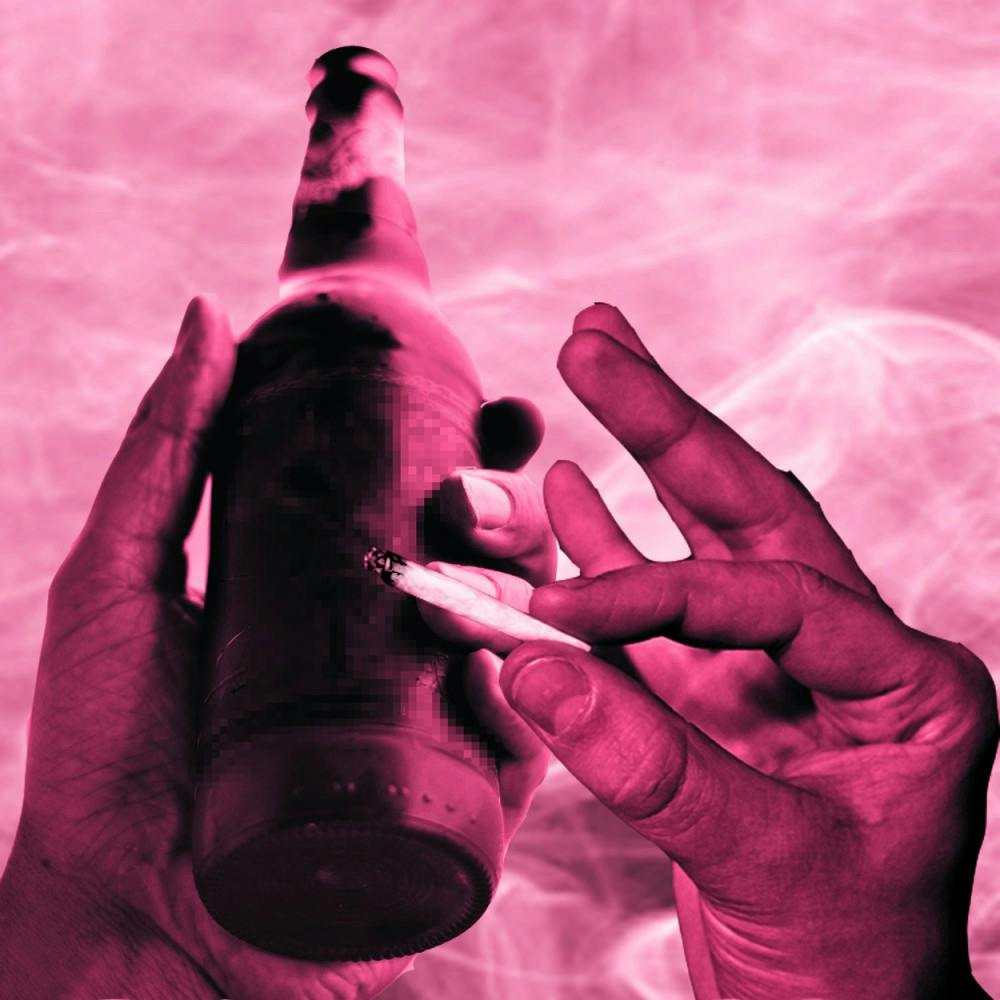Senior Nick Swartzwelder decided to study the effects of drugs and alcohol when he was sitting in the passenger seat of his father’s car.
It began with a discussion about “crossfading”—using marijuana and alcohol at the same time—and its regularity on Duke’s campus. This was an unfamiliar term to his father, but Nick told him that knowing people who have crossfaded led him to question its effects on the adolescent mind.
This conversation led to a study on rats, published in Neuroscience Letters Aug. 29, that found that combining alcohol and THC—the chemical active in marijuana—affects adults and adolescents differently. It caused adults to have problems learning and remembering new objects, whereas it made adolescents more disposed toward familiar objects.
At the time, both Nick and his father—Scott Swartzwelder, professor of psychology and neuroscience—knew of studies that looked at each drug’s effects on the minds of adolescents and adults, which typically showed some form of memory loss and learning impairment in adolescents more than adults. Few studies, however, actually looked at the combined drugs’ effects on the mind, and the few that did contained errors.
“Nick said, ‘Here’s a drug combination that is used frequently during adolescence, and we know each drug affects learning more in adolescents than in adults, but is there a different effect in adolescents than adults when you put them together?’” Scott said. “My reaction to that was, ‘Well, why don’t you do it?’”
Nick took his father’s advice and transformed his question into an undergraduate research project. In 2010, he began conducting a study that looked at the effects of marijuana and alcohol combined on rats, which were chosen because of their natural tendency to interact with unfamiliar stimuli. Because of lab rats’ nearly unwavering inclination to explore new objects as opposed to familiar ones, the research team decided to test if the combination of the drugs would alter the rats’ natural tendency.
The rats were first isolated and put into chambers where each was given enough time to familiarize themselves with an object. Afterwards, the rats were given doses of THC and ethanol, went to sleep and were put back in the chamber the next day with the familiar object and an unfamiliar one.
“What you expect is that if the drug combination wiped out memory, they would spend equal amounts of time exploring both objects,” said Scott, co-author of the study. “That’s what the adults did.”
The adolescent rats, however, did not show signs of memory loss. Instead, they chose to solely interact with the familiar object because it was preferable to the new one, completely counter to their evolutionary tendency to explore.
“It suggests that something about the drug combination overpowered the [adolescent] animal’s natural tendency to explore what it doesn’t know and made it more comfortable with what it already knows,” Scott said.
A person is scientifically considered adolescent until age 25, which is when the brain stops developing. The results of the study indicated that the combination of marijuana and alcohol is more addictive in adolescents than adults, Scott said, adding that young people need to be more careful than adults when using THC and ethanol.
The results could also help scientists understand the archetypal stoner, said Shawn Acheson, assistant professor of psychiatry and behavioral sciences and co-author of the paper.
“The image attached to chronic THC use is the stoner who sits in his mother’s basement, who doesn’t do anything and doesn’t go anywhere,” he said. “Historically, that behavior was explained by the THC not activating the frontal lobes to initiate action, but the research suggests it might be a preference for environments associated with the drug that cause this.”
Nick, lead-author of the study, said the findings show students that one weekend of using both marijuana and alcohol has long-term ramifications.
“If you decide to drink and smoke throughout an entire weekend, it affects you long beyond just that day,” he said. “A lot of people don’t really understand that it does affect you longer than you think and prevents you from being as effective as a student.”
Get The Chronicle straight to your inbox
Signup for our weekly newsletter. Cancel at any time.

